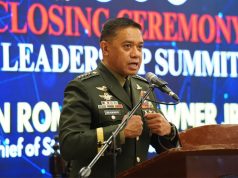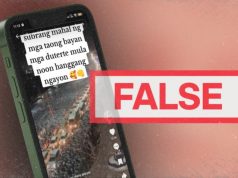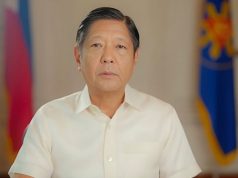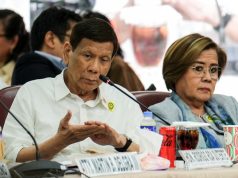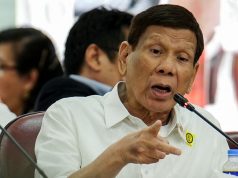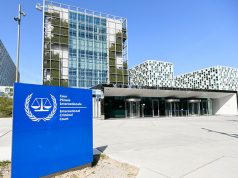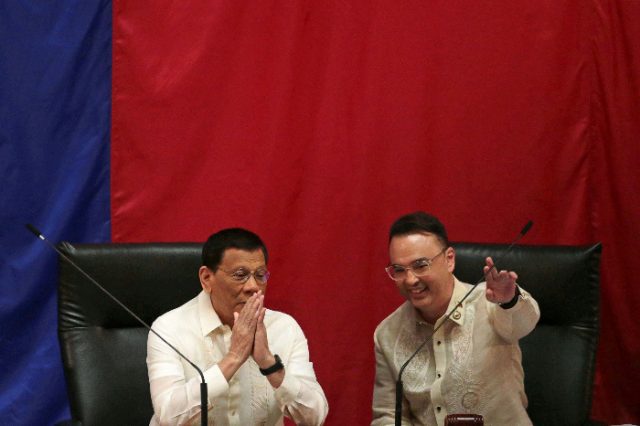
In the early days of his presidency, Rodrigo Duterte several times asked people to simply call him “mayor.”
A local executive of Davao City for three decades, Duterte as the country’s chief executive from time to time called for a translation of ordinances in his hometown to national policies.
In this fourth State of the Nation Address on Monday, July 22, Duterte asked Congress for legislation that imposes a midnight closing time for all establishments, especially commercial ones.
Wading into thick smoke
Cite no study or policy research to back the proposal, Duterte shared his thoughts when he inspected late-night party-goers and revelers when he was still a younger mayor.
“I made it a national policy because you know when I was new mayor, I went around to see the discos and night clubs. I could hardly see the faces of the people inside. You have to wade into a thick smoke to just recognize one.
“So that’s when I decided. But I was still smoking. But I decided because I knew, I already had it. So it’s time to—sabi ko. And a national law, para lahat na, that at 12 o’ clock, everything closes.”
In doing so, he repeated his admission that he was diagnosed with Buerger’s disease, where blood vessels become inflamed, swell and can become blocked with blood clots. He also threatened in jest those who smoked.
“Sinong naninigarilyo dito? They should be exterminated from the face of the earth. [laughter] They are the ones… You know, I… I’m… I do not hide my—what’s wrong with me. I acquired Buerger’s disease because I smoke.”
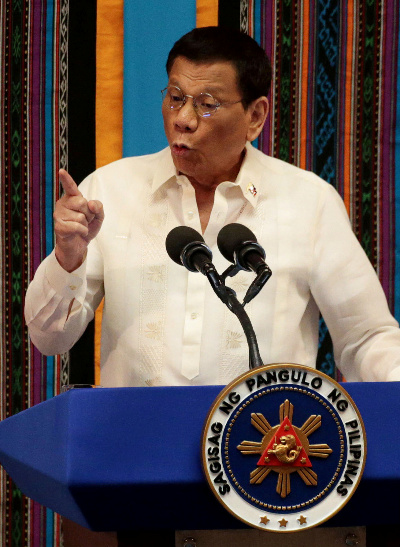
Duterte in 2017 banned smoking in all public places in the Philippines. Invoking the Clean Air Act of 1999 and the Tobacco Regulation Act of 2003, Duterte penned an executive order that replicates an ordinance in the southern city he helmed.
Ticktock
In his latest SONA, he said that in Davao City, he required businesses to close at 1 a.m. at the latest. He also referred to his daughter, Sara, who first became mayor in 2010, whom he claimed imposed a 6 p.m. closing time.
“Mine was that two o’clock noon sa Davao, it was two then I reduced it to one. When that boxing mayor there became mayor, she reduced it to six. Walang order, no orders in advance.”
“Kasi we have ordered already, so you can close but we have to drink. Itong ngayon, at 12, everything closes down. Nobody works. So I… I think that we should adopt it. Most of the states, in many states, in many countries, ganun man. Alas dose, sarado na talaga.”
RELATED: Full text of the 2019 State of the Nation Address
Duterte also batted for a better quality of life for families by enacting a daily cutoff time for drinking alcoholic beverages and playing loud music.
“We have to stop drinking. And jukebox, they’re only good up to eight, nine. Eight, maganda ‘yan. It’s a… It’s there in every corner, store. Blares out noise and the children who will go to school and the working class, and you are there with your store.
“I have prohibited it in Davao. And at 12, as you see, Davao is quiet because everybody is resting already. Be it in the memorial parks, cemetery, or in the comfort of their homes.”
Duterte’s small-city approach as national policies
Experts pointed out some of Duterte’s tendencies and habits as symptoms that he failed to adapt from his ways as mayor when he went on the national political stage, once far from the gaze of international media and observers to one in the forefront.
Regional and political studies expert Malcolm Cook, a fellow at Australian think tank Lowy Institute and Singapore-based ISEAS – Yusof Ishak Institute, wrote that Duterte’s “lack of political transition” could be noticed in three ways:
1. His focus on the war on drugs as a law and order issue, marked by extreme measures that resulted in increasing body count. Such an approach is more frequently used by mayors.
2. His attacks on critics especially when they represent checks and balances of institutions and co-equal government branches.
“At the local level, there are no co-equal branches of government to the mayor’s office, and local media outlets are usually much more amenable than their national and international peers,” Cook explained.
3. His use of colloquial language that is often colorful and sometimes even crass.
“Mayors, particularly of peripheral cities, do not represent their country on the international stage and thus do not need to follow particularly strict protocol,” the Cook wrote.
The scholar also pointed out that while these characteristics bring about unprecedented perception problems and even diplomatic headaches, what is ironic is “his maverick persona is central to his political success so far.”
Duterte is now among the most high-profile of international human rights violators, but his appeal to the Filipino public is far from waning.
Results of a regular nationwide survey released last week show that eight of 10 Filipinos still approve of Duterte despite heavy criticism on his bloody drug war, his handling of issues surrounding the West Philippine Sea and his approach toward the country’s rival maritime claimant, China. — Camille Diola




